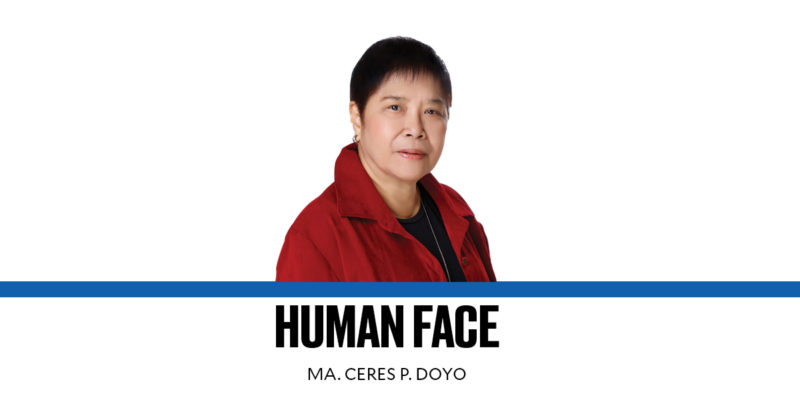Flashback Friday: Church-Military Relations in the Philippines
On August 31, an Inquirer.net news report by Jean Mangaluz titled “Church to be represented in the NTF-Elcac” highlighted the controversial National Task Force to End Local Communist Armed Conflict (NTF-Elcac). The NTF-Elcac, which is the government’s initiative to address communist insurgency, has faced criticism from human rights groups for its alleged Red-tagging, asset-freezing, and branding of individuals as terrorists, thus endangering lives and fostering a culture of impunity. This sets the context for today’s look back into history.
Flashback Friday: Church-Military Relations in 1982
In 1982, there was a forum attended by Catholic bishops, where Salvador P. Lopez, a former university president, diplomat, writer, and statesman, questioned Bishop Antonio Fortich of Bacolod diocese. Lopez asked, “Aren’t the Church and the military just using each other in the Church-Military Liaison Committee (CMLC)? And how long could this go on?” The subtext of his question was the notion of mutual benefit – “You scratch my back, I’ll scratch yours.” The exchange can be found in Lorna K. Tirol’s comprehensive article titled “In this Catholic country, is it being subversive to live out Christ’s gospel?” published in Philippine Panorama on November 21, 1982. This piece later resulted in a libel threat and military interrogation of the author, an experience shared by several women writers, including myself, during the Marcos dictatorship. The article is included in a book I edited.
Before that, in 1981, a book titled “Church-state relations” by Mario Bolasco and Rolando Yu was published by St. Scholastica’s College, where both authors were faculty members. This book provides a wealth of information on the workings of the church during the dark years of martial rule, starting with the concept of “critical collaboration” or doing a balancing act. It unravels how the churches eventually found their voice and broke open the floodgates. In a similar vein, my previous articles titled “How fares the Church in a bewildering decade” published in Panorama on September 4, 1983, and “At first there were only priests, nuns” published in the Inquirer on September 21-22, 1997, shed light on the imposition of martial rule under the Marcos dictatorship.
During those times, books with seemingly innocuous titles carried a powerful punch, capturing the spirit of resistance and truth. One such example is “Vision of a New Society,” written by Felix Casalmo, later revealed to be Jesuit sociologist Fr. John Doherty. It is worth noting that the Association of Major Religious Superiors also had its own “mosquito press” during the dictatorship. Publications like “Various Reports,” “Signs of the Times,” and “Ichthys” (named after the fish symbol used by early Christians in the underground) were circulated using mimeograph machines by nuns and their allies. These brave individuals risked their safety to spread what was considered “contraband” information. Although we now have the advantages of social media and easy access to information, there seems to be a decline in such grassroots activism.
The Evolution of Church-State Relations: CMLC to NTF-Elcac
While it may be tempting to draw parallels between the present-day NTF-Elcac and the Church-Military Liaison Committee (CMLC), it is important to note the distinctions. The NTF-Elcac has been in existence since the Duterte presidency, without any representation from the Church. However, the CMLC was established in November 1973, initially to address human rights violations committed against clergy and religious, such as arrests, detentions, abductions, torture, and raids. It was a critical response to the turbulent times. During that period, Fr. Primo Hagad, a priest who suffered severe torture, was forever changed by the experience. The raid on the Jesuit Sacred Heart Novitiate in Novaliches also marked a turning point.
In relation to the NTF-Elcac, the Catholic Bishops’ Conference of the Philippines (CBCP) clarified that only its commission on public affairs would engage with the task force. The CBCP aims to provide “moral-ethical approaches” in addressing insurgency. However, it is essential to acknowledge that among the vocal supporters of NTF-Elcac is Pastor Apollo Quiboloy, who is wanted in the United States for alleged sex trafficking. His social media accounts have been shut down. The link between NTF-Elcac and CBCP will be discussed further in the CBCP’s permanent council, and it is crucial to hope for positive outcomes rather than fearing co-optation.
Amidst these discussions, it is crucial not to overlook the case of two abducted female activists in Bataan. Jhed Tamano, aged 22, works with the Ecumenical Bishops’ Forum-Central Luzon program, while Jonila Castro, aged 21, is a volunteer environmentalist aligned with groups opposing reclamation projects in Manila Bay. Their safety and well-being should be a significant concern.
Denial of responsibility! Vigour Times is an automatic aggregator of Global media. In each content, the hyperlink to the primary source is specified. All trademarks belong to their rightful owners, and all materials to their authors. For any complaint, please reach us at – [email protected]. We will take necessary action within 24 hours.
Denial of responsibility! Vigour Times is an automatic aggregator of Global media. In each content, the hyperlink to the primary source is specified. All trademarks belong to their rightful owners, and all materials to their authors. For any complaint, please reach us at – [email protected]. We will take necessary action within 24 hours.


